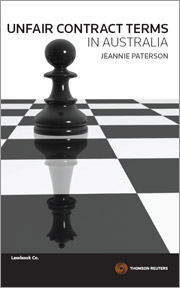
Unfair Contract Terms in Australia
|
Book $245.00 RRP |
Date: 21/11/2011 Code: 9780455229089 Thomson Reuters, AUSTRALIA |
 Unfair Contract Terms in Australia
Price: $245.00
|
Available Formats
| Format | Title | Date | Code | Price | |
|---|---|---|---|---|---|
| Book | Unfair Contract Terms in Australia | 21/11/2011 | 9780455229089 | $245.00 |
Add to cart
 Unfair Contract Terms in Australia
Price: $245.00
|
Description
" (A) serious... book which will sit close by for frequent reference...a detailed and analytical (consideration) of the new legislation..This is one of the most succint (yet) comprehensive and analytical books that I have had the pleasure of reviewing...a must have reference book, it will be regularly referred to as a guide to this emerging legislation."
- Law Society Journal of Tasmania, January 2012
This new and timely work provides up-to-date and detailed analysis of the new ‘Unfair Contract Terms Law’ (UCTL) that was introduced as part of the Australian Consumer Law reforms of 2010, and which took effect in each state and territory from 1 January 2011.
The UCTL represents a radical change in consumer protection law and in contract law.
In Unfair Contract Terms in Australia experienced author and senior lecturer Dr Jeannie Paterson explains the operation of the UCTL and considers the implications for standard ‘boilerplate’ terms in consumer contracts. The work also examines the background to the reforms and utilises precedents drawn from similar regimes that have operated in Victoria and the UK.
Unfair Contract Terms in Australia will be highly useful for litigation purposes and compliance work. It will appeal to competition, consumer and commercial solicitors and barristers as well as regulators involved in drafting, reviewing and enforcing standard form consumer contracts.
Traders dealing with consumers will find this work invaluable as they review their contracts to ensure compliance with the legislation.
Unfair Contract Terms in Australia is a vital resource for the adjustment to, and ongoing compliance with, the new law.
Features
- Why regulate Unfair Terms?
- Comparing the regulatory regimes – the UK and Victorian precedents
- Overview of the Australian Consumer Law and UCTL – the constitutional context, transitional arrangements for the UCTL and the approach to enforcement.
- Contracts and terms excluded from review for fairness
- Application of the UCTL
- Identifying and interpreting the terms of a contract subject to review
- The test of an Unfair Term
- Matters relevant in determining whether a term is unfair
- Enforcement, effect and remedies
- Unconscionable conduct and Unfair Terms
- The Consumer Guarantee Law
- The ‘Grey List’ of terms that may be unfair
- Common terms that may be unfair
You Might Also Like
-

Global Issues in Contract Law Spanogle Malloy Del Duca et ...Book
$87.00
-
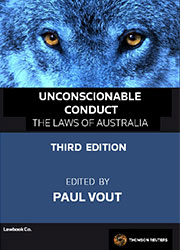
Unconscionable Conduct Third Edition - The Laws of Austral...Book
$214.01
-
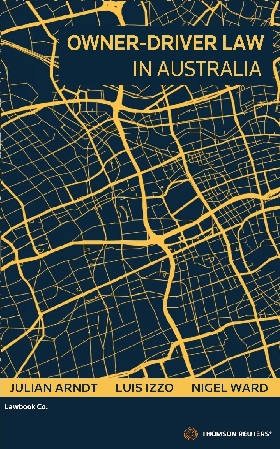
Owner-Driver Law in Australia First Edition - BookBook
$136.00
-
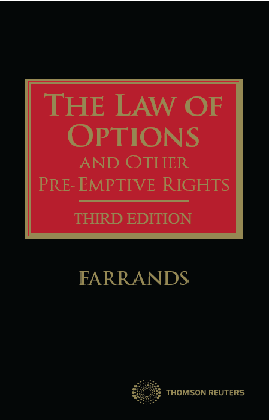
Law of Options & Other Pre-Emptive Rights Third Edition - ...Book
$266.00
-
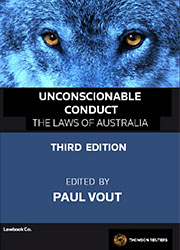
Unconscionable Conduct Third Edition - The Laws of Austral...Book+eBook
$278.00
-
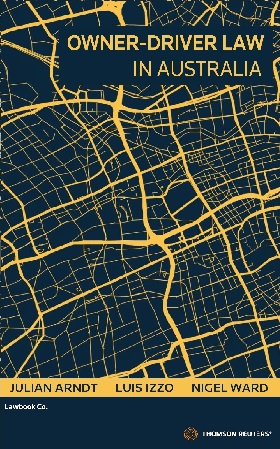
Owner-Driver Law in Australia First Edition Book+eBookBook+eBook
$177.00
-
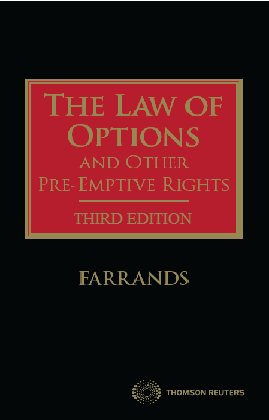
Law of Options & Other Pre-Emptive Rights Third Edition - ...Book+eBook
$345.00
-
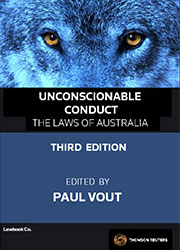
Unconscionable Conduct Third Edition - The Laws of Austral...eBook - ProView
$214.01
-
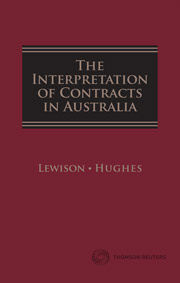
The Interpretation of Contracts in Australia - eBookeBook - ProView
$415.00
-
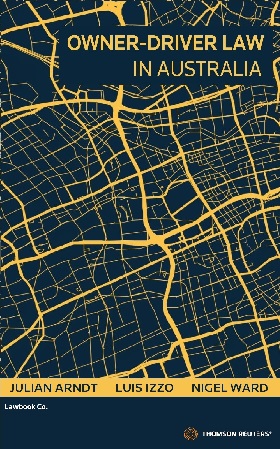
Owner-Driver Law in Australia First Edition - eBookeBook - ProView
$136.00
-
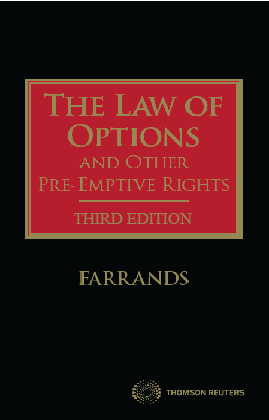
Law of Options & Other Pre-Emptive Rights Third Edition - ...eBook - ProView
$266.00
Editorial Reviews
From: (2012) 32 Qld Lawyer 165
Reviewed by Eric Halden
In 2008 the Productivity Commission published the Review of Australia’s Consumer Policy Framework and identified several arguments supporting a regime to regulate unfair contract terms. The recommendations of the Commission were ultimately included in the Competition and Consumer Act 2010, particularly Schedule 2, the Australian Consumer Law (the ACL). The ACL is the national generic consumer law and replaces the Trade Practices Act 1974. A major aspect of these wide ranging laws is the introduction of a national law to regulate unfair contracts, specifically unfair contact terms.
This text serves as a thorough and clear introduction to a key component of the ACL, the Unfair Contract Terms Law (UCTL) located in Pt 2-3 of the ACL. Paterson commences with a discussion of how a safety net is required to protect consumers from unfair terms and that the regulation of unfair contract terms can play a role in creating a fairer and more balanced market.
Given that the ACL came into force less than a year prior to the publication of this text, an in depth analysis of the application of the UCTL was obviously impossible to include. In Chapter 3 Paterson provides a comparison of the regulatory regimes found in the United Kingdom and the former Victorian Fair Trading Act 1999 as case law under these regimes is relevant to the application of the UCTL. Although brief, this chapter provides a thorough analysis of how unfair contract terms were dealt with by the Victorian courts and are currently dealt with by the UK courts. This analysis gives the reader an insight as to how the UCTL may ultimately be applied across Australia.
This text then outlines what type of terms and contract are exempt from UCTL review (ch. 4) and then lists the type of contracts to which the UCTL applies (ch. 5). These chapters are brief and future editions of the text will undoubtedly contain a discussion of case law once matters proceed through the courts. The same applies to chapters six to eight, which provide clear explanations of the mechanics of the UCTL [Identifying and Interpreting Terms Under the UCTL (ch. 6), Test of an Unfair Term (ch. 7), Matters Relevant to Determining if a Term is Unfair (ch. 8)] and will undoubtedly become more in depth as matters are litigated.
Paterson touches on Unconscionable Conduct (obligatory for any contract law text) and Unfair Terms before providing a brief analysis of the Consumer Guarantees Law (CGL). Paterson explains how the CGL complements the UCTL by regulating the substantive content of consumer contracts by setting minimum mandatory standards of quality applying to the supply of goods and services to consumers.
The final two chapters of the text consider the Grey List of Terms That May be Unfair (ch. 12) and Common Terms That May Be Unfair (ch. 13). Both chapters offer considerable analysis of the respective topics and methodically set out how and why such terms may be unfair in a manner which is easy for the reader to consider.
Paterson’s book serves as an excellent introductory text to this particular section of the ACL and how the laws are likely to be applied. One can hope that further editions are to follow in the same vein as this text as Paterson presents the analysis of the legislation in a thorough, yet concise manner that makes for uncomplicated contemplation of an evolving and somewhat daunting area of law.
Resource Downloads
Product Reviews
- (2012) 32 Qld Lawyer 165 [PDF 34010]
- (2012) 86 ALJ 790 [PDF 34960]
- Ethos September 2012 [PDF 60190]
- International Trade and Business Law Review: Vol 16 [PDF 138921]
- Law Letter, Autumn 2012 [PDF 72470]
- Uni Tas Law Review Vol 31 No1 2012 [PDF 215170]
 Competition & Consumer Law
Competition & Consumer Law